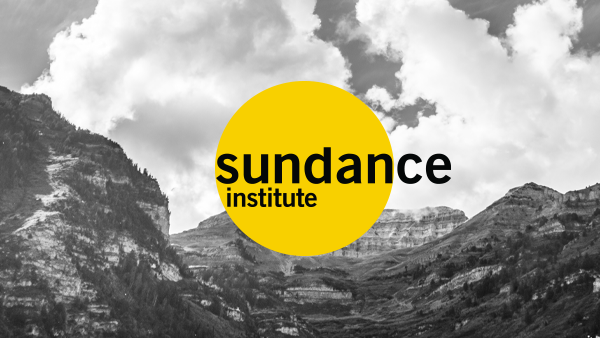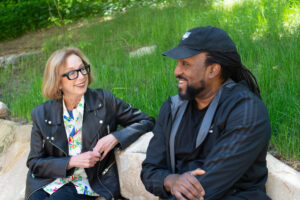Eric Hynes
If you tell one tiny story well, it becomes universal.
—Amir Bar-Lev, director of The Tillman Sory
People, rather than politics or polemics, were what mattered to the directors behind three of the most topical and socially vital films in this year’s Sundance Film Festival.
Veteran broadcaster Lynne Kirby moderated “The New War Stories” panel at the Filmmaker Lodge on Monday, which brought together documentarians Tim Hetherington and Sebastian Junger (Restrepo), Amir Bar-Lev (The Tillman Story), and dramatic filmmaker Mohamed Al-Daradji (Son of Babylon) to discuss their different approaches to making films about contemporary war and conflict.
By focusing on the human aspect of war, and by acknowledging the power and necessity of storytelling, all of the panelists identified the ways in which filmmaking can contribute to the larger conversations about war without getting mired in politics.
“We have enough politics in Iraq,” said Al-Daradji. “But human beings—you don’t hear or see about them enough.” Hetheringon concurred. “The problem is that we’re looking at these stories for a political dialogue, but the heart of it is the human story,” he said. “Our film has no political context but a massive amount of emotional context.”
Despite their formal and contextual differences—Restrepo is a visceral verité account of combat in Afghanistan, The Tillman Story is a more traditional documentary exposé about the events surrounding the death of soldier and former football star Pat Tillman, and Son of Babylon is a fictional coming-of-age narrative set in war-torn Iraq—all three films offer perspectives on current realities that can’t be found in popular media coverage.
“These films are all covering a gap of some sort in the reporting and our understanding of war,” said Kirby, and Bar-Lev carried the thought even further. “Good filmmaking tells it like it is. We really are the new journalists,” he said.
Yet Hetherington spoke of the need to move beyond film, or any other single format, to push a message across. “Just telling a simple story and translating it across many different forms, you can reach a lot of people,” he said. “Different people look at different forms. Not everybody is going to come and see a documentary film, but they may look at the work in another way. I would urge anyone working in the realm of communication to stop thinking of themselves as filmmakers or photographers or writers, but to think of themselves as communicators. To use whatever tools are at your disposal to fight this war.”
Click here to read more about the New War Documentaries at Sundance.




